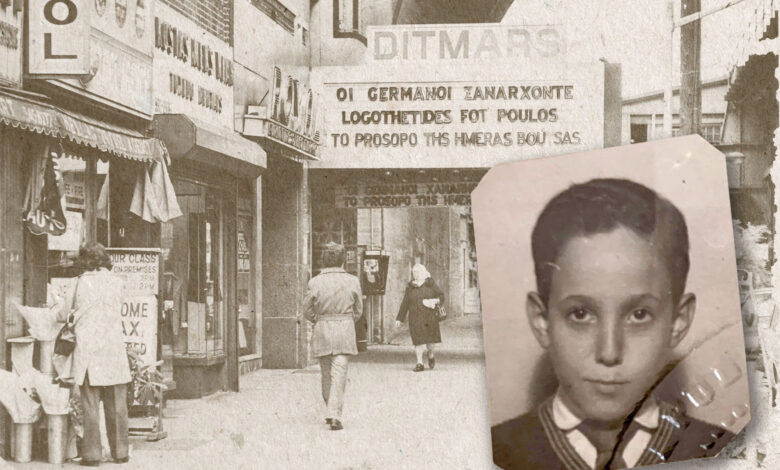50 years after arriving from Cuba, I fear America is falling apart

This Tuesday marks half a century since I arrived on American shores, and it was love at first sight. Queens felt snug and homey from the start. The country has changed in important ways over the last five decades, in some ways better and in others worse. But America is still very much worth loving.
The fact that today we have two political camps divided by this question — love of America — would have felt strange to the kid who landed at JFK on Aug. 6, 1974, having been born in Cuba and spent two years in Spain with his family waiting for a visa. When that coveted pass finally arrived and we emigrated to New York, I found Jackson Heights full of unending possibilities.
It’s not happenstance that this election year divides us precisely on whether you love America for what it is — the Land of Opportunity, even if it could use some improvements — or if you think it’s hideously racist and oppressive, and seek to transform it. This is the result of a process that I have witnessed firsthand for 50 years and devoted decades to study.
Take the term “Hispanic,” which did not exist 50 years ago and only later did I learn I might qualify as one. That category had not yet been invented by bureaucrats at the Office of Management and Budget (OMB). It did not happen until 1977 with OMB Directive No. 15, and then was slapped on the Census for the first time in 1980.
I remember my uncle Ramon, who took us in, coming home sometime in the ’70s and informing us that this curious new term, “Hispanics,” was in the works. He was a journalist, one of my mentors and the embodiment of the American Dream, and had heard about this administrative contrivance while working on a story.
We were puzzled. We were Cubans, on our way to becoming Americans, and saw no need to be told to go to a category apart. Sure, we reveled in the fact that both teams in the 1975 World Series had a Cuban player (Luis Tiant of the Red Sox and Tony Perez of Cincinnati’s Big Red Machine), but also enjoyed the Autumn Classic for what it was, while mourning that Yogi Berra’s Mets were not in it.
Decades later, as I discerned the threat that this balkanization represented to the American Way of Life — which, after all, had beckoned us here — and I began to research the subject, I found out exactly what had happened.
Leftist activists, the same ones who laid waste to my native island under Fidel Castro, had forced initially reluctant administrators to create the category of Hispanics.
Why? The Left realized that you must create a never-ending slew of special-interest groups, and then make them feel they’re marginalized, so they’ll sign up for the transformative revolt.
“The challenge with the work that I do at Voto Latino is that I can’t get people agitated because often times they don’t know the great harm that has happened under the structures that we have been raised by,” their President and CEO Maria Teresa Kumar said. “But once they start understanding it and recognizing it, they act and react, and fight.”
When Kamala Harris segregates her supporters into “affinity groups,” I know exactly what she’s up to.
As an American born elsewhere, I have the advantage of being able to compare and contrast. When people ask me where I grew up, I often answer that I came of age in Castro’s Cuba, Franco’s Spain and Abraham Beame’s New York.
It’s less glib than it sounds.
The Cuba that I saw in the 1960s was the setting for the craziest of Caribbean communist revolutions, a Mecca for America’s internal enemies, from Angela Davis to Stokely Carmichael and members of the terrorist Weather Underground.
Francisco Franco in the early 1970s was near the end of a life he had devoted to reactionary opposition to any societal change. As Yale’s Allan Bloom wrote, Franco personified the last coercive attempt to undo, “in the name of Throne and Altar,” all the revolutions that followed the one in France in 1789.
New York may have beamed to me in the 1970s, but under Mayor Beame it was also an unnecessarily dangerous place with some bad schools, a reality that no rose-tinted glasses could obscure. That Beame’s New York seems to be returning these days following the relative safety of Mayors Rudy Giuliani and Mike Bloomberg saddens me.
Unsurprisingly, the camp today that does not like America does not take issue with this public safety matter — indeed, they justify it in the name of supposed systemic racism. The rogue prosecutors who contribute to the public danger by releasing criminals or refusing to prosecute them — and yes, I am referring to New York’s Alvin Bragg — are in the camp that dislikes America.
But these public safety matters did not put a dent on my love for Jackson Heights, Queens, New York, or America. It only made me want to improve, not transform, the land I loved from the first step I took upon it.
A lot has changed in 50 years, but that attachment has remained constant.
Mike Gonzalez is a senior fellow at The Heritage Foundation and the co-author of “NextGen Marxism.”




